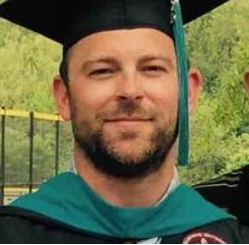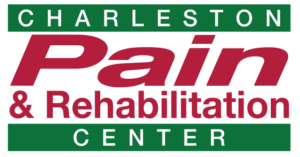Have you experienced an injury lately, leaving you in severe pain and discomfort and don’t know how to address it?
When most people sustain an injury, the first thing that usually comes to mind is whether to see a doctor or not. While it’s a common belief that physical therapy is for postoperative orthopedic conditions, there are numerous injuries that can be treated through the help of physical therapists, without necessarily undergoing surgery.
If you have sustained an injury in Charleston, South Carolina, and need physical therapy, do not hesitate to contact Charleston Pain and Rehab. We have years of experience in this field and will work with you to find a treatment plan that will have you leading a normal life in no time. Reach out by calling 843-556-3462 today!
What is Physical Therapy?
Physical therapy is a non-invasive form of health care that helps patients develop, maintain and restore optimum physical function and movement. This discipline can help people alleviate pain, recover from injuries, deal with chronic conditions and even prevent future injuries. Physical therapy can be used at any age or stage of life and its ultimate goal is to boost health and improve quality of life.
Physical therapy starts by doing an evaluation, which includes a medical history and physical examination. With this information, the specialist will come up with a treatment plan, provide some manual support for exercise and monitor progress.
What Types of Conditions Can Physical Therapy Help to Treat?
Physical therapy can be used to help treat a wide array of conditions including but not limited to:
Posture Correction
Whether you are an office worker, athlete, or a growing teen, bad posture can result in numerous problems. Bad posture comes about by things such as the day-to-day effects of gravity on the body. It can also develop due to an illness, injury or due to genetic-issues.
Reputable physical therapists help at improving body alignment, muscle balance, biomechanics and postural habits.
At Charleston Pain and Rehab, we have a team of physiotherapists, massage and stress management specialists and osteopaths who can help address posture-related imbalance and pain. In addition, we provide advice for preventative measures like recommending an ergonomically correct desk setup at your workplace.
Back & Neck Pain
Back and neck pain comes as a result of overuse, lifting injury, auto accident or even chronic. Regardless of the type or cause, our well-trained physical therapists will be able to assess and treat the condition. Through hands-on manual methods, mobility and stabilization exercises, and treatment modalities, our specialists can help you no matter the source of your back or neck pain.
Shoulder & Arm Pain
While this pain can be due to a sports injury, it can also be a result of existing heart problems. Shoulder and arm pain can include Tendinitis (the irritation or inflammation of tendons), but it can also be extended to carpal tunnel syndrome and rotator cuff injury.
If you have sprained or broken bones in your shoulder and/or arm, physical therapy from professionals can help the bones heal as you recover.
Pinched Nerve
Also referred to as compressed nerve, pinched nerve is a condition where pressure on the nerves induces pain in several parts of the body. Pinched nerve can be caused by staying static in a single position or repetitive motion for an extended period. The condition can also be caused by spinal conditions like herniated discs.
Physical therapy as a technique to address pinched nerve is known to be more effective than other non-surgical methods such as steroidal injections and administering drugs. That’s because physical therapy brings more than simply pain relief.
Undergoing physical therapy helps stretch and strengthen your muscles in the affected spot. In turn, this helps you regain your earlier levels of mobility and flexibility.
Slipped Disc
A slipped disc occurs when the soft tissue that cushions the bones in the spine pushes. A slipped disc is painful when it presses on your nerves, although it gets better gradually with rest, painkillers and gentle exercise.
The majority of slipped discs don’t need surgery and physical therapy is the best treatment method. Our physical therapists at Charleston Pain and Rehab are movement experts and will work to create a personalized treatment program to help alleviate pain, regain normal movement, and get you back to your regular activities.
Carpal Tunnel Syndrome (CTS)
Also called median nerve compression, CTS is a condition characterized by numbness, weakness or tingling in the hand. If you do repetitive tasks for extended periods like writing or typing, you are bound to put too much pressure on the median nerve in the wrist. This can result in repetitive stress and pain on both your wrist and hand.
Median nerve compression can also be a result of health conditions like obesity, hypothyroidism, rheumatoid arthritis, and diabetes. When left unaddressed, carpal tunnel syndrome not only leads to discomfort but also disruption to your normal life. Luckily, CTS can be treated in numerous ways including physical therapy, exercise, lifestyle changes, medication, and in severe cases, surgery.
Athletic Performance
Sports, particularly those that need you to exert additional physical effort can lead to injuries. Whether you were simply engaging in regular exercise, playing your favorite sport, or are a professional athlete, you are always at the risk of sustaining a sports-related injury.
Fortunately, if you live in Charleston, South Carolina, our team of physical therapists can help prevent and treat these types of injuries. With a personalized prevention exercise and recovery program, you will be able to get back on track and improve your athletic abilities in no time.
Some of the common athletic-related injuries that can be prevented, managed and treated using physical therapy include:
- Hip Flexor Strain
- Concussion
- Golf or Tennis Elbow
- Sciatica
- CL Strain or Tear
- Shin Splints
- Shoulder Injury
- Hamstring Strain
Migraines and Headaches
Chronic tension-type migraines and headaches not only put you in distress but can also result in severe head or neck injury if not addressed. More often than not, this kind of pain is a result of physical disturbances in the upper back and neck muscles. By diagnosing the problem and implementing an ideal care plan, your physical therapist should be able to help alleviate the migraine or headache. Increasing the neck’s mobility and strengthening the upper back muscles are some of the most effective techniques to keep tension-type migraines and headaches at bay.
Whiplash
This is an injury to the neck region that often involves rapid movement into extension followed by flexion. Usually, whiplash is associated with auto accidents, but it can also happen when you participate in high-velocity contact sports like rugby and football. When you visit our therapists due to whiplash symptoms, you will undergo a spine movement assessment. Depending on the findings, a personalized exercise program will be implemented in addition to other treatment options such as manual stretches, massage, etc.
Jaw Pain (TMD/TMJ)
The Temporomandibular Joint (TMJ), the joint used to move the jaw is one of the most regularly utilized joints in the body. Chronic or acute inflammation of this joint is known as Temporomandibular Joint Disorder. Physical therapy is a feasible form of treatment that includes anti-inflammatory modalities, manual therapy, therapeutic exercises as well as modifications to diet and physical activity.
Hip Pain
Your hip is basically a ball and socket joint made up of the femur (thigh) and pelvis. There are numerous ligaments that support the bones, providing substantial stability to the joint. Many muscles ideally attach around this section to assist in joint movement.
If you are experiencing hip pain, physical therapy can help alleviate your symptoms and restore your optimal functional mobility. Once you reach out to one of our physical therapists, your program will primarily focus on reducing or eliminating your pain, improving hip strength and range of motion as well as normal functional mobility restoration.
What Happens During a Physical Therapy Appointment?
Initial Evaluation
When you first meet the physical therapist, you will undergo the initial evaluation. During this session, our specialist will assess your situation. To accomplish this, they will ask several questions in order to learn about your specific condition, symptoms, medical history, and the impact of your current lifestyle on health. Next, they will make some measurements including your strength, range of motion, balance, and mobility. This is to determine the best method to approach your condition and afterward, help create a custom treatment program.
Once you and the specialist have created a program, you can embark on it, even on the same day. Keep in mind, however, that it is imperative that you comprehend the aim of the treatment program as well as the anticipated course of your rehabilitation. So, ensure you ask the practitioner these questions in order to understand them better.
Physical Exam
The next section of the appointment involves a physical examination. In this portion, the physical therapist will have you go through several movements. In addition, they will take measurements and examine by touch, sections in your body in order to determine where swelling, restricted tissue, or tenderness may be. Lastly, they will do standardized or special tests that will determine the baseline assessment for you specifically. Keep in mind that a reputable PT will ask you for feedback about your symptoms. Doing your home here is where it comes in handy. The more thorough and inquisitive they are during this step, the better.
Creating a Development plan
Last but not least, the PT will come up with a treatment plan that’s based on your needs and discuss the objectives and outcomes with you. If you agree, the PT can embark on treatment immediately and use therapeutic techniques such as electrical stimulation. This comes in handy in managing pain and boosting muscle functionality. In addition, they will prescribe specific exercises to do while at home.
A successful treatment only happens with open communication with the physical therapist. Tell them what you feel, what is working, and what is not. Only this way can you get the best results.
Meet The Doctor
Dr. Adam S. Fischer, PT
Living an active lifestyle is important but can be affected by aches
and pain from injury. Whether these injuries are new or long
standing, physical therapy is an excellent non-surgical and non-
pharmacological way to improve and maintain individual physical
health. Charleston Pain and Rehabilitation Family Medicine
would be happy to provide your rehabilitation needs with in house
Physical Therapy provided by Dr. Adam Fischer, PT. Adam
graduated from Bellarmine University, Louisville, KY in 2015, and
relocated from Chicago, Illinois bringing years of clinical
experience and passion for physical medicine and fitness
Charleston Pain and Rehab Understands Your Pain!
Living with pain can be both physically and mentally debilitating. As such, it is best to consult a professional in physical therapy regarding a customized treatment plan is vital. It helps to work with a professional who understands that your pain should encompass and focus on both you and your pain. If the pain does not get better, let them know to adjust your physical therapy treatment plan. Our specialists care about every patient and work to ensure they help alleviate pain and improve the quality of every one.
At Charleston Pain and Rehab, we understand that everyone’s pain differs, and there is no one-for-all treatment for pain. That’s why we create personalized physical therapy plans for each patient depending on their symptoms, lifestyle, medical history, etc. We utilize advanced tools and techniques so that you can be confident we will do our best to uncover the root cause of the pain can design a treatment plan to do away with your pain. After all, it’s easier to tackle the pain after uncovering the root cause. Call our offices today at 843-556-3462 to get started!


